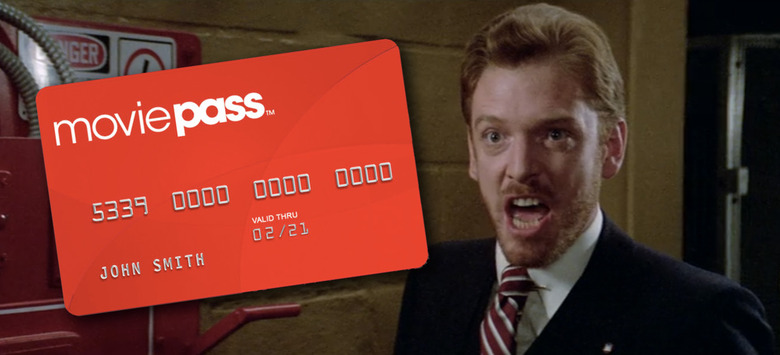MoviePass Intentionally Stopped Customers From Seeing Movies, You Know, Like A Liar
Hey, remember MoviePass? The movie ticketing subscription service shook up the movie theater industry back in 2017 when it boldly offered customers the opportunity to see one movie in theaters every day for the low cost of $10 per month. MoviePass became extremely popular and it sparked plenty of rage from the major movie theater chains. But it flew too close to the sun and came crashing down in 2019 after their costs greatly outweighed the money they were making from subscriptions.
Now a new report from the Federal Trade Commission has revealed that as the company struggled to survive, MoviePass tried to stay afloat by deceptively stopping customers from being able to see movies. That's right, the one service that customers paid MoviePass to provide was something the company actively tried to prevent.
Mashable called our attention to an FTC press release that reveals MoviePass "went to great lengths to deny consumers access to the service they paid for while also failing to secure their personal information." Some of the methods used to deter customers from buying movie tickets through MoviePass are woes that subscribers are all too familiar with.
The Many Lies of MoviePass
One way MoviePass tried to quell the sale of movie tickets was by invalidating their users' passwords and claiming that fraud was detected on customer accounts. This wasn't an isolated incident either, because it's estimated that 75,000 users had this practice used on them. In fact, some customers ended up locked out of their accounts because the process of resetting their password after invalidation didn't work properly.
Another method of stopping movie ticket purchases was MoviePass' own "ticket verification program." When MoviePass only allowed customers to see a movie one time in theaters, they required customers to send an image of their ticket for purchase verification. However, the system didn't work properly, causing thousands of subscribers to lose access to the service with no valid reason.
That's Not All
Those are just the ways that MoviePass tried to stop customers from using their service. The FTC also explains other sins committed by the company, which includes storing consumer data such as financial information and email addresses in plain text rather than keeping it encrypted and limiting access to such details. MoviePass may have also violated the Restore Online Shoppers' Confidence Act (ROSCA). You can find more details on that in the complete FTC press release linked above.
It's a shame this company went under, because MoviePass could have faced a major lawsuit that likely would have resulted in customers receiving some kind of payment for this deception. If there's one good thing that came from MoviePass, it was forcing movie theaters to start their own subscription services. MoviePass essentially became the Napster of the movie theater industry, and we'll never forget them, even if they left a bad taste in our mouth. We can't wait to see their story told by Mark Wahlberg.


